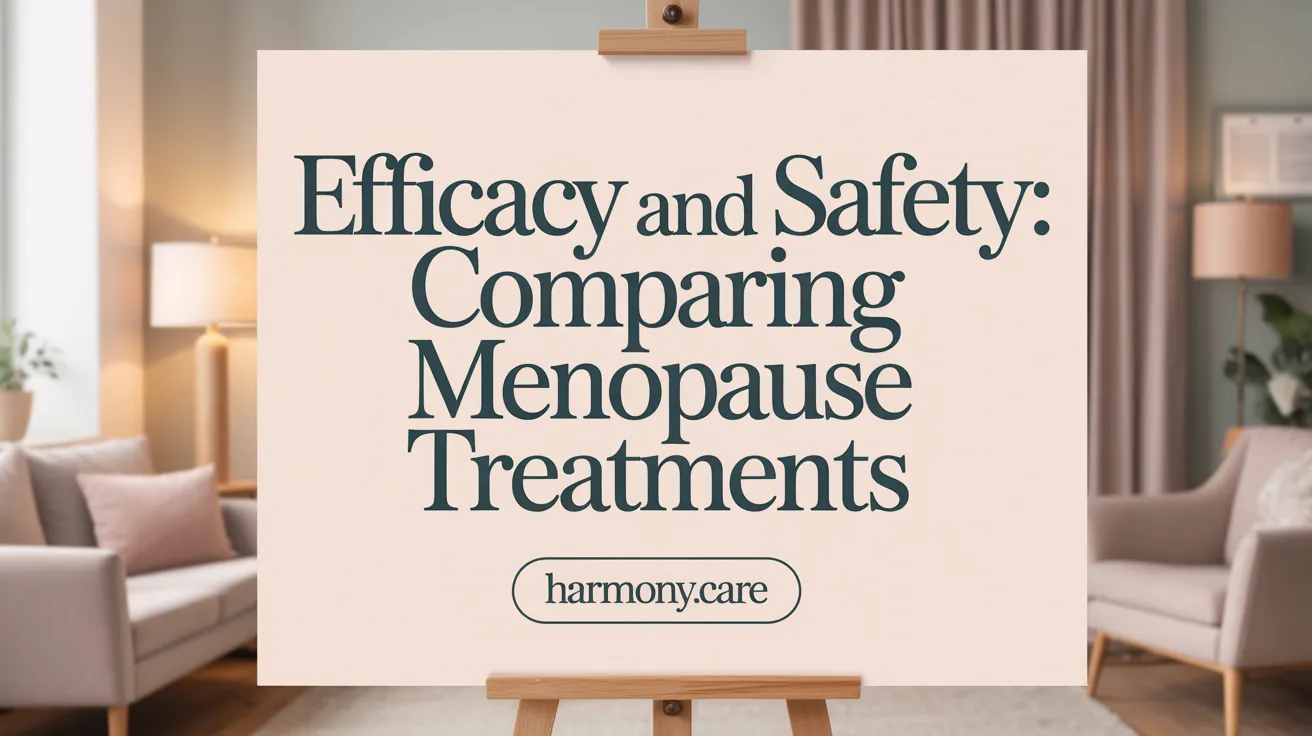Understanding Integrative Care in Menopause
Menopause is a natural phase in a woman’s life marked by hormonal changes that can lead to a variety of symptoms affecting physical, emotional, and psychological well-being. Integrative care offers a holistic approach by combining conventional medical treatments with complementary and lifestyle interventions to address these multifaceted challenges. This article explores evidence-based therapies, natural remedies, lifestyle modifications, and mind-body practices as part of an integrative strategy to ease menopausal symptoms and improve quality of life.
Defining Integrative Care for Menopausal Symptom Management

What is integrative care in the context of managing menopausal symptoms?
Integrative care in the management of menopausal symptoms is a comprehensive, multidisciplinary approach that combines standard medical treatments with complementary and lifestyle strategies. Instead of relying solely on hormone therapy or medications, this model emphasizes tailoring treatments to each woman's unique needs, preferences, and health profile.
At its core, integrative care includes a blend of conventional approaches such as hormone replacement therapy (HRT), bioidentical hormones, and pharmacological options, alongside evidence-based complementary therapies like acupuncture, herbal supplements, mind-body practices such as yoga, meditation, and hypnotherapy, and nutritional interventions.
The goal is to holistically address the physical issues—such as hot flashes, vaginal dryness, and sleep disturbances—while also supporting emotional well-being, mental health, and overall quality of life. This approach encourages collaboration among healthcare providers from different disciplines, fostering open communication and shared decision-making.
Importantly, women are empowered through education, understanding the potential benefits and risks of different options. Self-care strategies, including diet modifications, stress management, and physical activity, are integral components.
Overall, integrative care promotes a personalized, patient-centered pathway that not only alleviates menopausal symptoms but also enhances resilience and long-term health, making it a holistic model that aligns with the principles of wellness and preventive medicine.
Evidence-Based Therapies in Integrative Menopause Management
What evidence-based therapies are effective in integrative menopause management?
Effective management of menopausal symptoms using integrative approaches involves several therapies supported by scientific evidence. Among these, clinical hypnosis has shown consistent, significant reductions in hot flashes, with trials demonstrating a decrease of 69% or more in severity and frequency. This mind-body practice utilizes focused attention, mental imagery, and suggestion techniques to induce a relaxed state, effectively alleviating vasomotor symptoms.
Cognitive-behavioral therapy (CBT) is another well-supported approach. It is particularly useful for reducing hot flash-related distress and psychological impacts such as anxiety or depression, even though it may not significantly decrease hot flash frequency. CBT helps women reframe their perceptions and cope better with menopausal symptoms, improving overall quality of life.
Relaxation practices like mindfulness-based stress reduction (MBSR) and techniques such as yoga and biofeedback can further enhance well-being by decreasing stress levels, which may indirectly reduce symptom severity and improve sleep quality. While evidence for direct relief of vasomotor symptoms remains limited, these practices are beneficial for managing emotional health and stress.
Pharmacological nonhormonal options also have robust evidence. Selective serotonin reuptake inhibitors (SSRIs) and serotonin-norepinephrine reuptake inhibitors (SNRIs), such as paroxetine and venlafaxine, have demonstrated efficacy in reducing hot flashes by approximately 40-65%. Gabapentin, an anticonvulsant, is effective in diminishing hot flashes and improving sleep, while neurokinin receptor antagonists like fezolinetant (FDA-approved in 2023) directly target hypothalamic pathways that regulate body temperature, offering rapid and sustained symptom relief.
However, the evidence for herbal supplements like black cohosh and soy isoflavones remains mixed. Some studies report possible benefits, but overall, conclusions are inconclusive, and there are safety concerns such as potential liver toxicity or interactions with other medications. Therefore, it is advisable to exercise caution and consult healthcare providers before use.
In summary, mind-body therapies such as hypnosis and CBT, along with scientifically supported pharmacological agents like SSRIs, SNRIs, gabapentin, and fezolinetant, form the core of evidence-based integrative management. Combining these approaches personalized to individual needs can improve symptom control and support overall quality of life during menopause.
Natural, Herbal, and Holistic Options for Menopause Relief
 Menopause is a natural transition that many women seek to manage through various relief strategies. Among these, natural treatments for menopause, herbal remedies for menopause symptoms, and holistic menopause treatment have gained popularity as alternatives or complements to hormonal therapy.
Menopause is a natural transition that many women seek to manage through various relief strategies. Among these, natural treatments for menopause, herbal remedies for menopause symptoms, and holistic menopause treatment have gained popularity as alternatives or complements to hormonal therapy.
Herbal supplements such as black cohosh, red clover, evening primrose oil, soy isoflavones, and flaxseed are commonly used. Black cohosh, in particular, is reputed to reduce hot flashes and night sweats, although scientific findings are inconsistent. Red clover contains plant-based estrogens called phytoestrogens that may help balance hormones, but reliable evidence regarding its effectiveness remains mixed. Evening primrose oil, rich in omega-3 fatty acids, is believed to alleviate hot flashes and support skin and vaginal health. Soy isoflavones and flaxseed, both rich in phytoestrogens, have demonstrated modest benefits in reducing vasomotor symptoms and improving cholesterol levels.
In addition to herbal supplements, lifestyle practices like yoga, meditation, acupuncture, and breathing exercises are effective in promoting well-being and alleviating menopausal discomfort. Yoga can help with psychological symptoms and improve sleep, while acupuncture may assist in reducing hot flashes, although more robust research is needed.
Dietary modifications also play a crucial role. Incorporating phytoestrogen-rich foods such as tofu, soy milk, flaxseed, and other plant-based products may provide hormone-mimicking effects that help lessen hot flashes. Maintaining a balanced diet high in calcium and vitamin D supports bone health, which is vital during and after menopause.
While herbal remedies and holistic treatments offer promising benefits, it is important to approach them with caution. The evidence supporting their efficacy varies, and some herbal supplements may cause side effects or interact with other medications. Consulting a healthcare provider before starting any herbal or alternative therapy ensures safe and appropriate use tailored to individual health needs.
By combining a healthy lifestyle with cautious use of herbal supplements and embracing mind-body practices, women can effectively manage menopausal symptoms naturally. This holistic approach promotes overall wellness, enhances quality of life, and minimizes reliance on medications with potentially adverse effects.
Lifestyle Modifications as Foundations for Symptom Management

How can lifestyle modifications help manage menopausal symptoms?
Lifestyle changes play a crucial role in alleviating menopause symptoms alongside medical treatments. Regular physical activity, including aerobic exercises, strength training, yoga, and tai chi, can significantly reduce hot flashes, improve mood, support bone health, and enhance cardiovascular function. Studies show that staying active not only helps in managing weight but also decreases the intensity of vasomotor symptoms.
A balanced diet rich in fruits, vegetables, whole grains, lean proteins, and healthy fats supplies essential nutrients that support overall health and mitigate symptoms like sleep disturbances and mood swings. Consuming foods high in calcium and vitamin D, such as dairy products and leafy greens, helps strengthen bones and reduce osteoporosis risk. Nutritional strategies including calcium and vitamin D intake and phytoestrogen-rich foods like soy and flaxseed can aid in symptom management.
Stress management techniques like yoga, mindfulness meditation, deep breathing exercises, and massage therapy can diminish anxiety levels, promote relaxation, improve sleep quality, and decrease hot flash frequency. These practices help shift the nervous system toward a resting state, reducing sympathetic dominance.
Identifying and avoiding personal triggers—such as caffeine, spicy foods, alcohol, and hot environments—can further help women control vasomotor symptoms. Simple environmental adaptations, like dressing in layers, using fans, and maintaining a comfortable room temperature, can provide immediate relief. Dietary tips for menopause, including avoiding caffeine and alcohol, can reduce symptom severity.
Implementing these lifestyle modifications not only alleviates menopausal symptoms but also boosts overall well-being, reduces health risks, and supports a sustainable approach to menopause management. Consulting healthcare professionals can help tailor these strategies to individual needs, ensuring safe and effective symptom control.
Non-Hormonal and Complementary Therapies for Menopause
Many women seek non-hormonal options to manage menopausal symptoms, especially when hormone therapy is unsuitable or unwanted. Several medications are available to alleviate vasomotor symptoms like hot flashes and night sweats. SSRIs (selective serotonin reuptake inhibitors), such as paroxetine and citalopram, and SNRIs (serotonin-norepinephrine reuptake inhibitors), including venlafaxine and desvenlafaxine, have demonstrated evidence supporting their ability to reduce hot flash frequency and severity. These are particularly useful for women who experience mood disturbances alongside vasomotor symptoms.
In addition to antidepressants, other non-hormonal medications like gabapentin—a drug originally used for seizures—and clonidine, a blood pressure medication, are employed effectively to lessen hot flashes. A newer option, fezolinetant, a neurokinin-3 receptor antagonist approved in recent years, has shown significant promise in clinical trials by targeting brain pathways involved in temperature regulation and hot flash occurrence.
Behavioral therapies are also integral to comprehensive menopause management. Cognitive-behavioral therapy (CBT) helps women cope with psychological and transitional aspects of menopause, reducing hot flash bother and associated stress. Hypnosis, involving guided mental imagery and suggestion in a relaxed state, has recently shown substantial reductions in hot flash severity and frequency in multiple studies.
Complementary practices further support symptom relief. Acupuncture, rooted in traditional Chinese medicine, may decrease inflammation, improve blood flow, and help restore hormonal balance, although research findings remain mixed. Yoga and other movement-based therapies can improve psychological well-being, reduce stress, and improve sleep quality. Aromatherapy, especially using lavender oil, might enhance relaxation and sleep, indirectly helping to manage hot flashes.
For vaginal dryness and discomfort, non-hormonal options such as water-based lubricants and vaginal moisturizers provide immediate relief. Physical strategies, like cooling fans, cold packs, and dressing in layered, breathable clothing, can help reduce hot flashes when they occur.
While these approaches can be beneficial, it is essential to consult healthcare providers to ensure safe and personalized treatment plans. Combining lifestyle adjustments with suitable medications and therapies offers a holistic approach, improving quality of life during menopause.
Comparing Efficacy and Safety of Integrative and Complementary Treatments
 When evaluating treatments for menopause, understanding both their effectiveness and safety profiles is crucial for informed decision-making.
When evaluating treatments for menopause, understanding both their effectiveness and safety profiles is crucial for informed decision-making.
Hormone therapy (HT), including estrogen alone or combined with progestogens, remains the most potent option for reducing vasomotor symptoms like hot flashes, night sweats, and genitourinary issues. High-quality clinical evidence supports its efficacy in improving quality of life and preventing osteoporosis. However, HT carries potential risks such as increased rates of thromboembolism, stroke, and certain types of cancer, especially with prolonged use. These risks require individual assessment before initiation (Menopause diagnosis, Hormone replacement therapy (HRT) for menopause, Management of Menopausal Symptoms).
Non-hormonal pharmacological options, including SSRIs, SNRIs, gabapentin, and clonidine, offer meaningful symptom relief, particularly for women who have contraindications to hormone therapy. These medications generally have favorable safety profiles but are associated with side effects such as gastrointestinal disturbances, sedation, or blood pressure changes (Non-estrogen treatments for menopausal symptoms, Management of menopause).
Complementary and integrative approaches like cognitive-behavioral therapy (CBT), hypnosis, and mind-body practices (yoga benefits during menopause, meditation, biofeedback) are considered very safe and can effectively reduce the interference caused by hot flashes and improve sleep and emotional well-being. These therapies often have minimal adverse effects, making them attractive options for many women (Complementary and Alternative Medicine for Menopause, Hypnotherapy for menopausal symptom relief).
Herbal supplements, including black cohosh, red clover, and soy isoflavones, are widely used, yet scientific evidence regarding their efficacy remains inconclusive. Although some women report symptom improvement, the variability in product quality, lack of regulation, and potential side effects — such as liver toxicity with black cohosh — highlight the importance of caution and consultation with healthcare providers (Herbal remedies for menopause symptoms, Safety of phytoestrogens in menopause).
Ultimately, the choice of therapy should be individualized, considering the severity of symptoms, personal health history, and risk factors. Combining hormonal, non-hormonal, and supportive therapies often yields the best outcomes for symptom management and overall health during menopause, underscoring the importance of personalized, holistic care (Integrative Care for Menopause, Holistic menopause treatment).
For a comprehensive comparison, see the table below:
| Treatment Type | Effectiveness | Safety Profile | Suitable For |
|---|---|---|---|
| Hormone therapy (HT) | Very effective for hot flashes & osteoporosis | Risks include blood clots, breast cancer, stroke | Women under 60, within 10 years of menopause |
| Non-hormonal pharmacological drugs | Moderate, especially for mood & sleep | Generally safe but side effects possible | Women with contraindications to HT |
| Mind-body practices (CBT, hypnosis, yoga) | Moderate, improves quality of life | Very safe, minimal to no side effects | Women seeking non-pharmacologic options |
| Herbal supplements (black cohosh, soy) | Inconclusive, some benefits reported | Variable quality, potential liver or interactions | Women preferring 'natural' options |
This balanced approach supports women in choosing the most appropriate therapy based on efficacy, safety, and personal preference.
Implementing Natural Remedies and Lifestyle Approaches Effectively
 Women can effectively manage menopause symptoms by thoughtfully integrating natural treatments for menopause and lifestyle habits. Before starting herbal supplements like black cohosh, red clover, soy isoflavones, or evening primrose oil, it is important to consult with healthcare professionals. This ensures safety, appropriate dosages, and reduces the risk of adverse interactions, especially since scientific evidence supporting their effectiveness is limited and outcomes can vary.
Women can effectively manage menopause symptoms by thoughtfully integrating natural treatments for menopause and lifestyle habits. Before starting herbal supplements like black cohosh, red clover, soy isoflavones, or evening primrose oil, it is important to consult with healthcare professionals. This ensures safety, appropriate dosages, and reduces the risk of adverse interactions, especially since scientific evidence supporting their effectiveness is limited and outcomes can vary.
Adopting a balanced diet plays a vital role. Consuming foods high in calcium, vitamin D, and phytoestrogens—such as soy products, flaxseed, and leafy greens—supports bone health and hormone balance. Staying well-hydrated by drinking adequate water also alleviates dryness and bloating associated with menopause.
Regular physical activity, including aerobic exercises, resistance training, yoga, and tai chi, not only improves physical health but also enhances mood, sleep quality, and overall well-being. Stress management techniques like meditation, deep breathing, and massage can further reduce hot flashes and improve sleep.
Women should avoid common symptom triggers such as caffeine, spicy foods, alcohol, and nicotine, which can worsen hot flashes, sleep issues, and mood swings. Creating a cool, comfortable environment and practicing good sleep hygiene can also help.
Collaborating closely with healthcare providers is essential for personalizing care. They can suggest safe supplements, recommend lifestyle changes, and monitor responses to various approaches. Combining medical advice with consistent lifestyle habits fosters a holistic strategy that emphasizes safety, effectiveness, and individual needs.
Overall, women who adopt a comprehensive approach—incorporating cautious use of natural remedies for menopause, balanced nutrition, regular exercise, stress reduction, and professional guidance—are better positioned to navigate menopause symptoms and support overall health during this transition.
Holistic and Functional Medicine Strategies Supporting Menopause Care
What holistic strategies including diet, exercise, mind-body interventions, and functional medicine support menopause symptom management?
Addressing menopausal symptoms through a holistic lens involves a combination of tailored lifestyle modifications, nutritional approaches, mind-body practices, and personalized assessments. A nutrient-rich diet emphasizing phytoestrogens, calcium, vitamin D, and omega-3 fatty acids forms the cornerstone of nourishing the body. Foods such as soy, flaxseed, leafy greens, fatty fish, and fortified products help support hormonal balance, bone density, and cardiovascular health.
Regular exercise plays a vital role in symptom management. Weight-bearing and resistance training help maintain bone strength, while aerobic activities improve cardiovascular health. Moreover, exercise contributes to mood regulation and sleep quality, which are often affected during menopause (Exercise and menopause).
Mind-body interventions like yoga, meditation, tai chi, and acupuncture can significantly reduce stress, alleviate hot flashes, and enhance overall psychological wellbeing. Relaxation techniques and mindfulness-based practices help modulate the nervous system, thereby easing vasomotor symptoms and improving sleep patterns (Mind and body practices for menopausal symptoms).
Incorporating nutraceuticals—such as isoflavones, calcium, vitamin D, and herbal supplements like black cohosh or red clover—may provide additional symptom relief. However, it is essential that these are used under medical supervision, given the variability in product quality and evidence (Safety of herbal supplements in menopause).
Lifestyle modifications are equally important. Strategies like maintaining a healthy weight, avoiding trigger foods such as caffeine and spicy foods, and practicing stress reduction techniques bolster overall health (Lifestyle changes for menopause). These adjustments help decrease symptom severity and prevent long-term health complications.
From a healthcare perspective, a multidisciplinary approach involving providers from endocrinology, gynecology, nutrition, and integrative medicine ensures comprehensive care. Engaging women actively in their health decisions promotes empowerment, adherence, and personalized treatment plans (Integrative care for menopause).
Functional medicine assessments provide detailed insights into hormonal imbalances, gut health, environmental exposures, and metabolic factors. Testing and personalized interventions optimize hormone metabolism and reduce associated risks, supporting women in navigating menopause with greater resilience (Functional medicine approach to menopause).
In summary, combining dietary strategies, physical activity, mind-body methods, personalized evaluations, and patient empowerment creates a robust, comprehensive framework for effective menopause care that addresses both symptoms and overall wellbeing.
Advancing Menopause Care Through Integrative Practices
Integrative care practices offer a promising path for managing menopause by addressing the diverse spectrum of symptoms women experience. Combining conventional medical therapies with evidence-based complementary treatments and sustainable lifestyle modifications allows for personalized, holistic management that supports physical, emotional, and psychological health. While hormone therapy remains highly effective for many, non-hormonal options, mind-body practices, natural supplements, and functional medicine approaches provide valuable alternatives or adjuncts for those seeking integrative strategies. Collaborative healthcare that empowers women through education and shared decision-making is vital to optimizing quality of life during menopause. Continued research to refine safety and efficacy of complementary therapies will further strengthen integrative care models, fostering comprehensive and compassionate menopause management.
